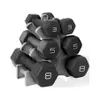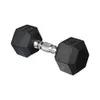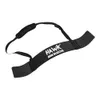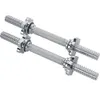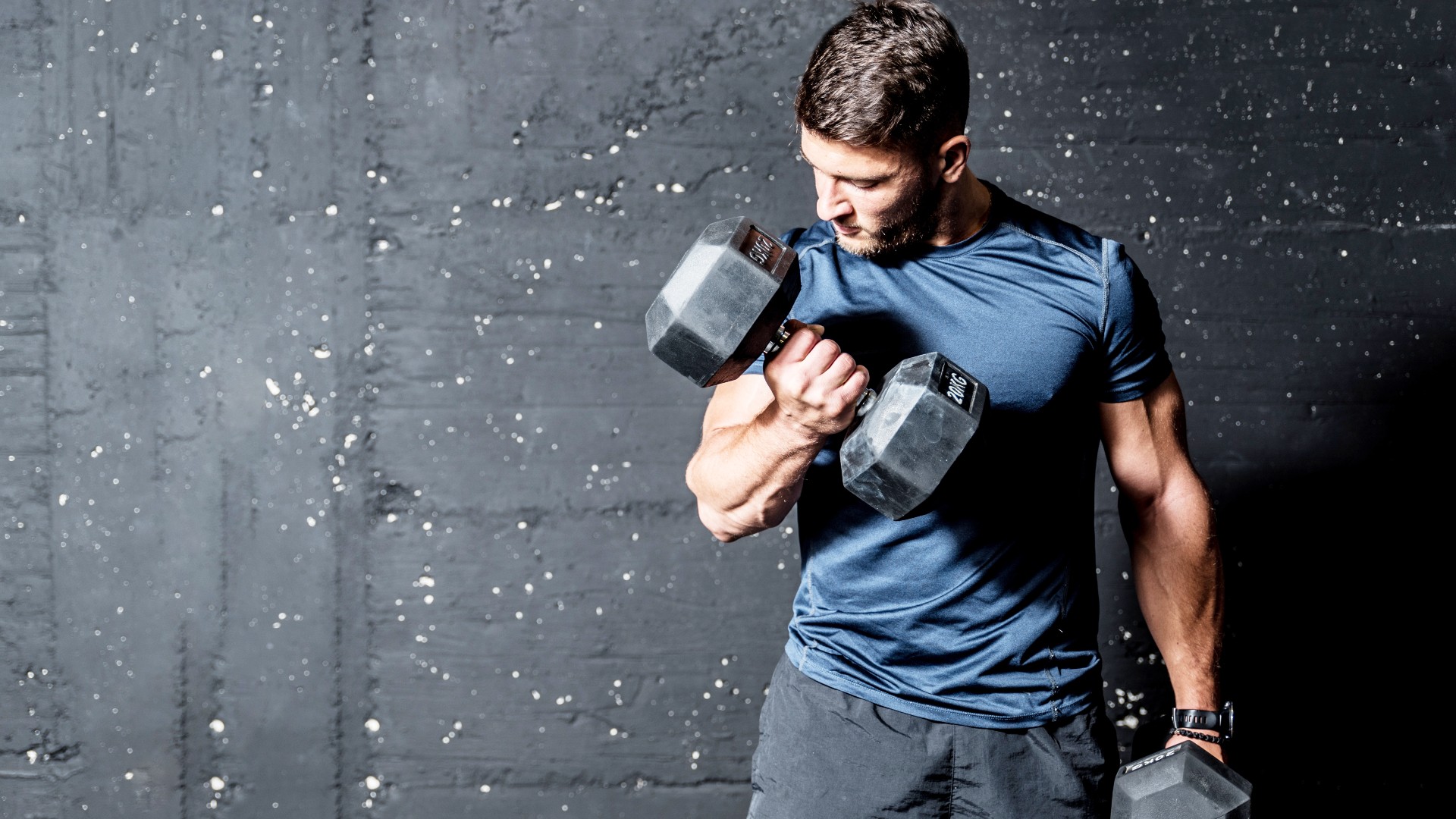
I love push-ups and all push-up variations, but the Z press has my heart when I want to use more of my core muscles and test flexibility and mobility. If you’re looking for an overhead press variation to build upper-body strength, you can do this one seated.
You only need one kettlebell gripped in one or both hands, or you can use a set of the best adjustable dumbbells instead. The press variation involves pushing a weight above your head while seated with your legs extended. It ticks the box for functional fitness, requiring core engagement and stability to control the weight at all times without compromising your form.
Here’s how to do the Z press, the benefits, and a few ways to scale.
How to Z press
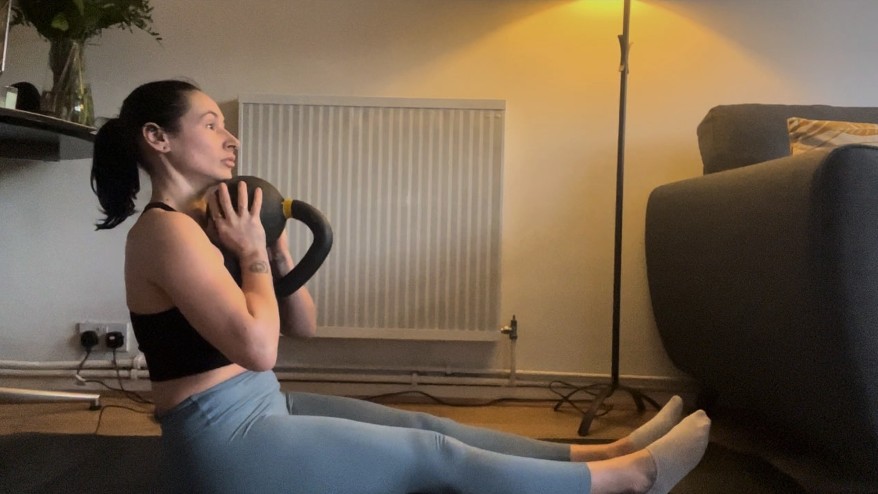
- Sit on the floor with your legs extended. Press the backs of your legs into the ground
- Hold a dumbbell or kettlebell in one or both hands and rack to your shoulders
- Draw your elbows forward to shelve the weights, brace your core muscles and sit tall with a straight back
- Press the weights overhead, keeping your arms close to your ears
- Keep your sternum over your hips to avoid arching your back or flaring your ribs
- With control, lower the weights to your shoulders again for one rep.
If you prefer, opt for a wide press by drawing your elbows out to the sides, palms facing forward.
What does the Z press work?
The press strengthens the deltoids, upper pecs, triceps and upper trapezius, but your core muscles must also work hard to keep you stable as you move. Unlike the standard overhead press, Z presses also test your hips and hamstrings as you sit with your legs extended.
The Z press can be used in any setting as a standalone movement or as preparation for your bench press or overhead press. I’ve also seen this variation crop up in gymnastics programs as it helps build overhead stability and warm up the shoulders for bar or inversion work. This is because the strict movement pattern activates the stabilizer muscles in the upper back, including the shoulder stabilizers known as the rotator cuff.
The strict upward pattern means you shouldn’t lean forward or backward, again encouraging strong posture and a straight torso as you press directly overhead with your core engaged. It translates to movements like handstands and barbell pressing when shoulder positioning is crucial for safely shelving weight overhead and proper balance.
Sign up to get the BEST of Tom's Guide direct to your inbox.
Get instant access to breaking news, the hottest reviews, great deals and helpful tips.
During the Z press, your legs won’t drive any motion like during the push press, so you may need to lift lighter weights until you get more proficient with the exercise.
I did the Z press every day for one week a while back and spoke with Brent Fikowski, an 8X CrossFit Games athlete, beforehand. He told me the Z press is one of the best strength exercises for building shoulder and triceps pressing strength, explaining the mechanics allow your shoulders to “rotate in a transverse motion,” teaching you to “rotate efficiently and move in all planes of motion.”
Given the shoulders are the most mobile joints in the body, moving them in all planes is essential for your shoulder health.
Tips for the Z press
For people with tight hamstrings, fully extending the legs might be a problem. You have several options: sit cross-legged, use a wall to support your back or place a block under your sit-bones to tilt your pelvis forward.
If you struggle with internally rotated shoulders (hunching forward), you might have tight pectoral muscles or weak lats. The Rush Chiropractic Center says these larger muscles may prevent the smaller stabilizing muscles in your back and shoulders from activating.
Over time, this imbalance may impact shoulder girdle function. Throughout the press, focus on contracting your back, setting your shoulders down and moving through a full range of motion.
Furthermore, research shows dumbbells can help reduce muscular imbalances, encouraging the left and right shoulders to work in unison, so I recommend avoiding the barbell for this motion unless your mechanics are strong and you’re looking to load maximally. Start light and reduce your reps or sets if you need to.
Bottom line
The Z press could improve shoulder mechanics and overhead pressing movement patterns while helping to develop a strong core and build upper-body muscle and stability.
It’s a compound exercise, which means it targets multiple joints and muscle groups at once, making it an efficient addition to upper-body strength training.
More from Tom's Guide
- Adding salt to your water is trending, so I tried it — and here's what happened after just two weeks
- You just need 2 dumbbells and 15 minutes to strengthen your core with this standing abs workout
- Help improve Tom's Guide — your chance to win a $250 Amazon gift card

Sam Hopes is a level 3 qualified trainer, level 2 reiki practitioner and senior fitness writer at Tom's Guide. She is also currently undertaking her Yoga For Athletes training course. Sam has written for various fitness brands and websites over the years and has experience across brands at Future such as Live Science, Fit&Well, Coach, and T3.
Having worked with fitness studios like F45 and Virgin Active, Sam now primarily teaches outdoor bootcamps, bodyweight, calisthenics and kettlebells. She also coaches mobility and stretching-focused classes several times a week and believes that true strength comes from a holistic approach to training your body.
Sam has completed two mixed doubles Hyrox competitions in London and the Netherlands and finished her first doubles attempt in 1:11.
You must confirm your public display name before commenting
Please logout and then login again, you will then be prompted to enter your display name.

